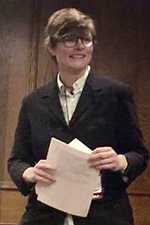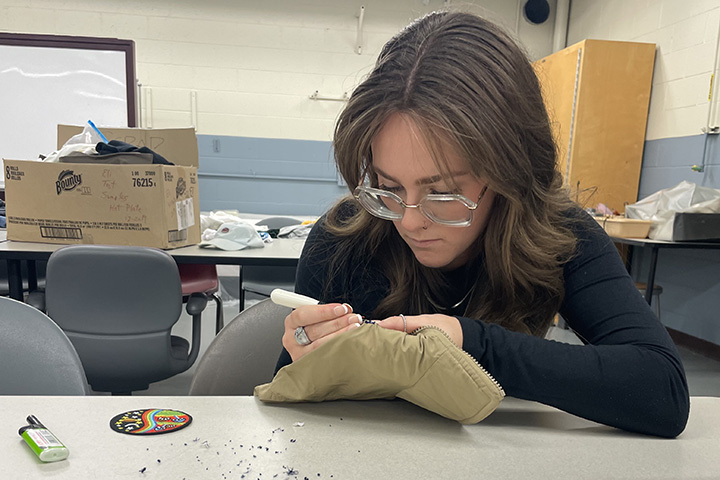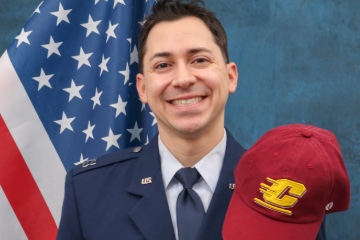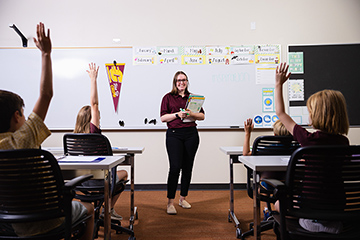Giving teachers the tools to fight burnout
Researcher puts self-care to the test and finds a winning SCORE
Everyone talks about burnout, but many people do not actively do anything about it.
Central Michigan University special education faculty member Brandi Ansley aims to change that — particularly in the world of teaching.
She created an eight-week virtual training program called SCORE (Self-Care Options for Resilient Educators) that teaches stress management skills in ways that relate to educators’ responsibilities and relationships. A study during the early months of the COVID-19 pandemic found SCORE can make a difference for the better.
“We live in a high-stress society,” Ansley said. “We’re designed with stress — and recovery from stress — in mind. But today, we’re exposed to such high stress levels, we have to be more intentional about managing it.”
It’s a challenge everyone faces, and educators especially need to prioritize self-care in order to be effective on the job.
“Otherwise, we’re not much use to anybody else,” Ansley said.
Self-defense against burnoutBrandi Ansley said there’s no single magical way to care for yourself or promote your well-being, but effective techniques can reduce stress in the moment and continue to help over time. She tells classroom teachers who tend to put their own needs last that time given to healthy coping and self-care is worth the investment in terms of professional quality of life. Here are a few of her tips:
|
In addition to experiencing burnout firsthand as a special education teacher, Ansley took on the burdens of students’ personal lives — what is known as secondary trauma.

“You get details of their trauma, and it may haunt you,” she said. Teachers also must be aware of any preoccupation with their students’ issues, as it may start to affect them.
Teacher burnout is a serious problem in education. Even before the pandemic, a national survey of more than 800 respondents found that 61% of teachers experienced high daily stress “often” or “always” compared with 30% across all other professions. In a similar survey after the outbreak, those figures rose to 78% and 40%.
Solutions, not problems
In 2016, Ansley began presenting professional development sessions in the Atlanta area with a team from Georgia State University. During these sessions, which were attended by teachers and other school personnel, she saw that stress management wasn’t the priority it should be.
“I might have been the only person at education conferences presenting on that topic back then,” she said. Now, it’s everywhere. “Apparently, other people had similar ideas at the same time.”
But after decades of research on the problem of burnout, there was still little information out there about how to deal with it.
“It’s still a problem-focused topic, rather than solutions-focused,” Ansley said.
When she came to CMU in 2018, she wanted to help aspiring teachers guard against burnout as they entered the field. It was time to put SCORE to the test. She had no idea how much of a test it would become.
The ultimate stress test
Ansley created a study that enrolled 28 CMU student teachers, half of whom would go through the SCORE program of written guides and videos.
She chose February 2020 to begin the eight-week study. Then COVID struck. By March 6, shortly before the start of lockdowns and shifts to remote learning, stress was at an all-time high. Students suddenly didn’t know whether schools would stay open or whether they could complete their degree requirements on time.
“I had never had a group of student teachers that was so discouraged,” Ansley said. She thought about calling off the study but decided to see it through.
She found decreased burnout and increased self-compassion among SCORE participants vs. the control group that did not try the program.
“There was a much larger increase in self-efficacy in the group that did this program,” she said. “The difference was phenomenal.”
More research is needed, which Ansley already is working on with others outside of CMU.
For now, the takeaway is that effective, healthy self-care is a critical part of the solution for addressing burnout and traumatic stress.
“There are so many healthy ways to self-care,” Ansley said. “And it’s really only going to make a difference if we make room for it."




